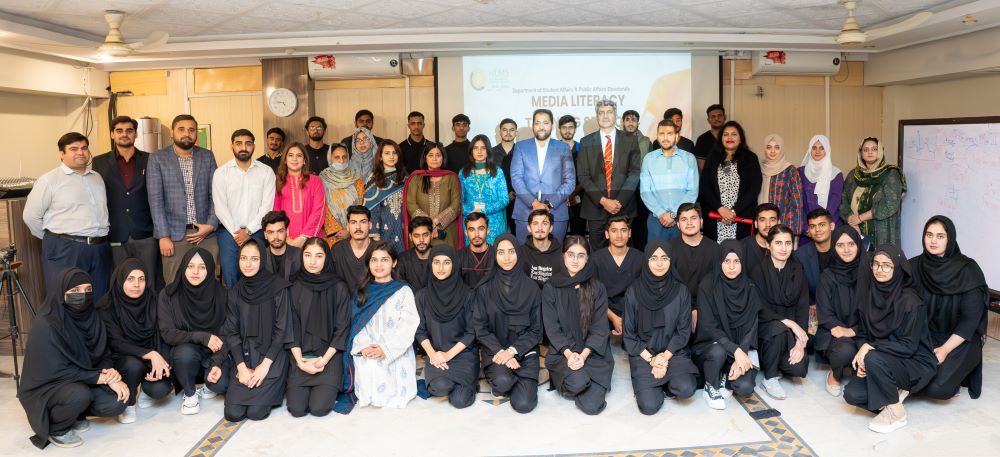
On October 22, 2024, the National Assembly passed a resolution emphasizing the importance of media literacy and the need to equip students, faculty, and university administrators with essential skills to navigate the digital information landscape. For this purpose, Higher Education Institutions (HEIs) were directed to conduct media literacy training sessions to raise awareness and prevent the spread of fake news.
Following this directive, the Department of Student Affairs, in collaboration with the Public Affairs Directorate at the National University of Medical Sciences (NUMS), conducted a Media Literacy Training on March 19, 2025. The session brought together students from different departments, faculty members, staff, HODs, and deans.
The session started with reciting verses from the Holy Quran, followed by the National Anthem of Pakistan. The Master of Ceremony welcomed the guests, participants, and students before providing an overview of the session. The Director of Student Affairs, Brig Muhammad Asif Chattha, (Retired) formally initiated the session, appreciating the organizing departments and highlighting the role of media literacy in combating misinformation. He stated: " All forms of misinformation and fake news should be rooted out wherever and whenever it occurs. In an era of misinformation, your ability to critically evaluate and verify information is more important than ever."
The session progressed with an insightful presentation by Mr. Abdul Aala Tirmizi, Deputy Director of Public Affairs, titled Media Literacy: Countering Fake News in Pakistan. He highlighted the dangers of fake news: " Fake news can lead to violence, social and political unrest, economic disruptions, and even public health crises." He stressed the need to develop critical thinking skills, fact-checking, and use fact-checking tools like Snopes and Dawn Fact Check to control the spread of misinformation. He further advised students to educate others and actively prevent the circulation of fake news. A Q&A session followed, and students asked thought-provoking questions and engaged in an interesting discussion.
Dr. Shazia Khalid, Dean of the Faculty of Social Sciences and Humanities, delivered the closing remarks, demonstrating how the human brain processes information and how misinformation spreads easily. She noted: "The Human mind, by default, processes information slowly. When we provide some information to our brain, it takes a part of it to fill out the rest of the information, and that is the purpose of gossip."
She commended the Public Affairs and Student Affairs departments for organizing the session. She also urged students to be responsible social media users, signifying the importance of evaluating and authenticating information before sharing it. The event concluded with a group photograph, marking the success of an insightful and engaging session.
.jpg)
.jpg)
.jpg)
.jpg)
.jpg)